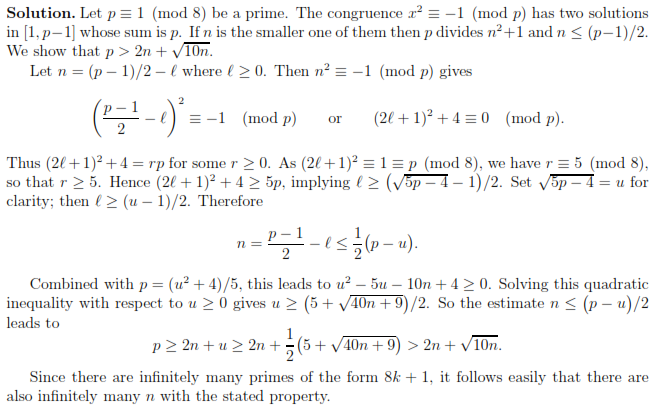Proof Contest Day 7
Prove that there exist infinitely many positive integers such that has a prime divisor greater than .
No vote yet
1 vote
Prove that there exist infinitely many positive integers such that has a prime divisor greater than .
Easy Math Editor
This discussion board is a place to discuss our Daily Challenges and the math and science related to those challenges. Explanations are more than just a solution — they should explain the steps and thinking strategies that you used to obtain the solution. Comments should further the discussion of math and science.
When posting on Brilliant:
*italics*or_italics_**bold**or__bold__paragraph 1
paragraph 2
[example link](https://brilliant.org)> This is a quote# I indented these lines # 4 spaces, and now they show # up as a code block. print "hello world"\(...\)or\[...\]to ensure proper formatting.2 \times 32^{34}a_{i-1}\frac{2}{3}\sqrt{2}\sum_{i=1}^3\sin \theta\boxed{123}Comments
Since Nobody posted the proof here is the proof:
Log in to reply
What is the motivation behind this? How can one go about approaching this proof?
Log in to reply
Well it helps in school unlike from brilliant here we have 3 chances.
Log in to reply
I do not understand your comment.
I am asking how one can motivate finding the proof to this problem. An understanding of the problem should also provide some insight into why the solution has a certain approach to it, and motivate why someone should consider such a solution.
Currently, this solution is like "magic", where while the individual steps are explained, it is not clear why we chose them, or why these steps work. For example, why do we look at p≡1(mod8)? What is it about n2+1 that tells us about prime divisors of the form p≡1(mod8)?